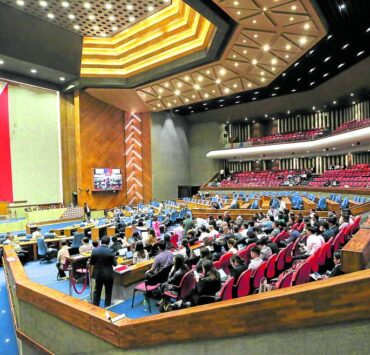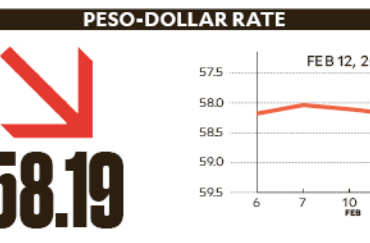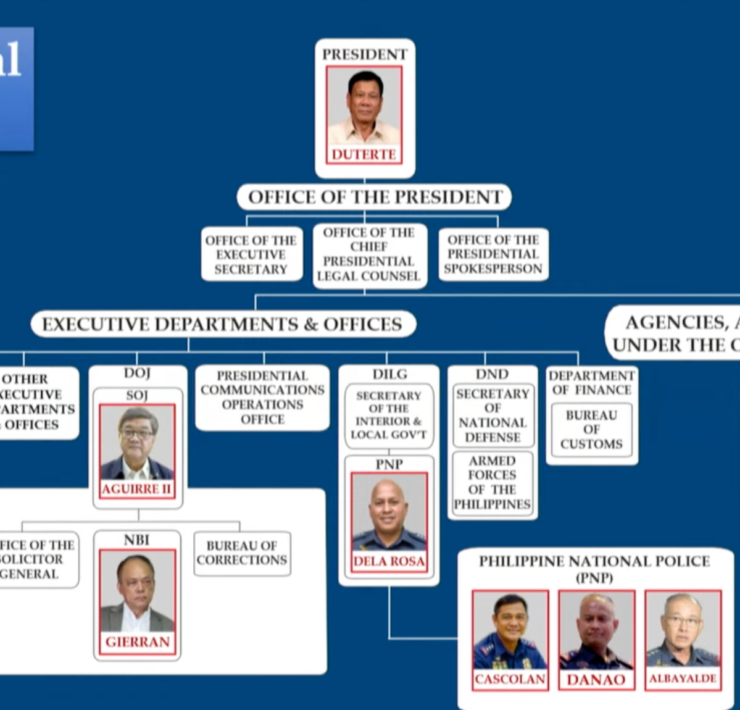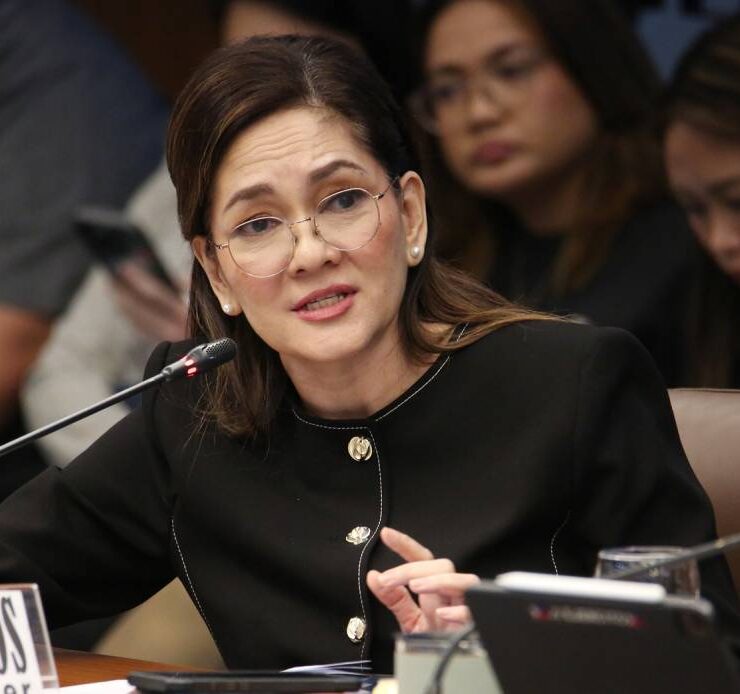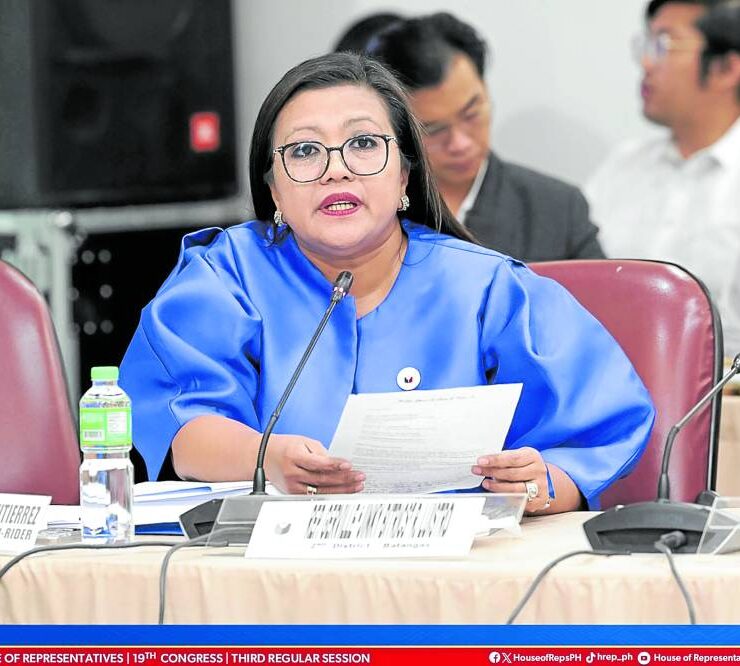NBI tags Sara for inciting to sedition, grave threats
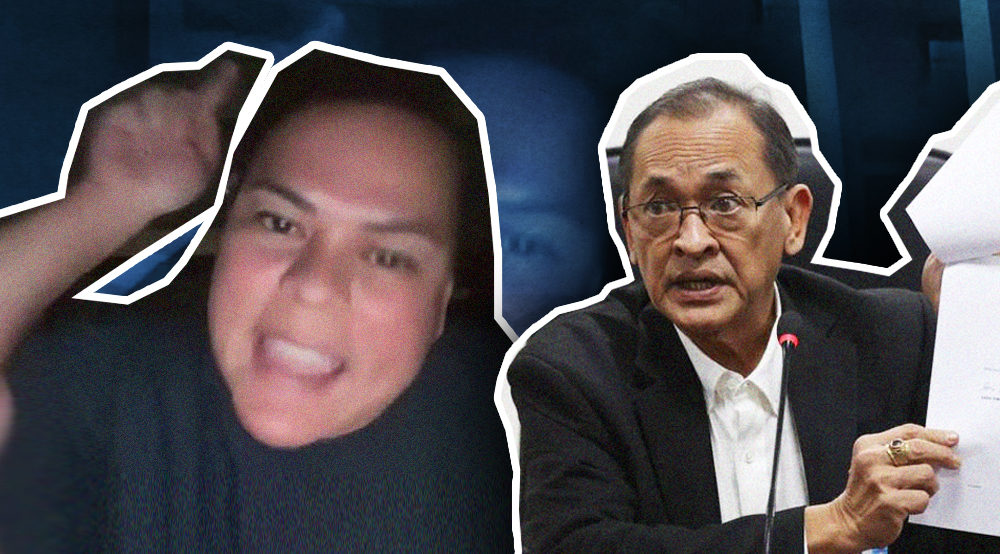
- Now the ball is with the Justice department, which vowed to “uphold the rule of law” and strictly follow “due process” in evaluating the agency’s recommendation. VP Sara Duterte’s response? “As expected.”
- According to Article 142 of the Revised Penal Code in relation to Section 6 of the Cybercrime Prevention Act, inciting to sedition is punishable by imprisonment of up to 12 years and a fine not exceeding P400,000.
- Grave threats, under Article 282 also in relation to the cybercrime law, carries a prison sentence of 12 to 20 years.
The National Bureau of Investigation has recommended the filing of criminal charges against Vice President Sara Duterte for the threats she made against President Marcos, first lady Liza Araneta-Marcos and Speaker Martin Romualdez during an online press conference in November last year.
It opens a new legal battlefront for the Vice President, one she may have to deal with while also facing an impeachment trial at the Senate.
According to a portion of the document shown by NBI Director Jaime Santiago, the National Prosecution Service of the Department of Justice (DOJ) received the bureau’s recommendations on Wednesday.
The DOJ promised it would “uphold the rule of law” to ensure “due process is strictly followed” in evaluating the recommendation of the NBI.
“The process will undergo case buildup as needed to assure that there is sufficient evidence and that the respondent is not unduly [hauled] to court,” the DOJ said.
“What we filed were inciting to sedition and grave threats. The [DOJ] will weigh whether to file both cases, or just one, or dismiss them. That will be the possible action of our prosecutors,” Santiago said in a press briefing.
The NBI chief explained that it would be possible to file three counts of grave threats against Duterte since she directed her statement at three individuals.
“On that part, there is jurisprudence that only one (can be counted) at the same time. But there is also jurisprudence that, because there are three complainants, [it should be] three counts. But it is not up to us to decide, it is up to the DOJ if [they will file] three counts or one,” he said.
According to Article 142 of the Revised Penal Code in relation to Section 6 of the Cybercrime Prevention Act, inciting to sedition is punishable by imprisonment of up to 12 years and a fine not exceeding P400,000.
Grave threats, under Article 282 also in relation to the cybercrime law, carries a prison sentence of 12 to 20 years.
‘As expected’
In response to the charges, Duterte issued a curt statement to the media on Wednesday: “As expected.”
Salvador Panelo, then chief legal counsel of former President Rodrigo Duterte, also lambasted the NBI’s recommendation for having “no basis in fact and in law.”
“The director of the NBI should go back to law school,” Panelo said in a statement, referring to Santiago, who is a retired Manila Regional Trial Court judge and former police officer.
“It obviously is tainted with politics and still part of the demolition job on her by her political enemies to put her out of contention in the presidential race of 2028,” Panelo stressed.
“Neither has VP Sara publicly and tumultuously incited the people to perform acts of sedition as defined by law or to go against the constituted authorities or to stop the enforcement of laws,” he said.
Subpoenas ignored
Following the filing of its recommendations, Santiago said in an interview with radio dzBB that the DOJ would be conducting a preliminary investigation based on the evidence submitted by the NBI.
He said the grounds for filing the charges included the threats made by Duterte during an online press conference last Nov. 23.
Duterte had said that she had spoken with someone to kill the President, his wife and the Speaker should an alleged plot to assassinate her succeed.
“I told this person that if I am killed, you kill BBM (Marcos), Liza Araneta, and Martin Romualdez. No joke, no joke,” Duterte had said. “I left word… that if I am killed, don’t you stop until you kill them. And then he said, ‘yes.’”
The Vice President has since denied making assassination threats against the President.
Days after the conference, the NBI issued a subpoena to Duterte, followed by a second one in December, as part of the bureau’s investigation regarding her alleged grave threats and possible violation of Republic Act No. 11479, or the Anti-Terrorism Act.
However, Duterte failed to appear at the NBI office during both summons, prompting the agency to conduct its investigation based on available evidence, which included interviews with the media who attended the conference.
Legal basis
According to the DOJ, it did not matter if the threat materialized as long as the statement could potentially create imminent danger to a person.
“The crime of grave threats penalizes statements that create real and imminent danger to specific persons, regardless of whether actual harm occurs. The Supreme Court has ruled that what matters is the intent behind the words—whether they were meant to convey a serious threat or instill fear,” the DOJ said.
“It is not necessary that the recipient actually feels intimidated or takes the words seriously; what is crucial is that the statement was made with the purpose of creating intimidation or fear. This is what the prosecutors will evaluate based on the evidence presented,” the DOJ added.
It added that laws against sedition penalizes any statement that could also pose a real threat to public order “regardless of whether actual unrest occurs.”
“While freedom of speech is protected, the Supreme Court has consistently ruled that it does not extend to speech that incites violence, rebellion, or disorder. The law does not require that an unlawful act be carried out—only that the statement was made with the intent to stir public unrest or disrupt stability. This is what the prosecutors will evaluate based on the evidence presented,” the DOJ said.
Immediate trial pushed
Ranking House leaders on Wednesday said the NBI’s recommendation bolstered the impeachment complaint against Duterte, and called on the Senate to recognize the urgency of starting her trial soon.
Assistant Majority Leaders Jil Bongalon (AKO Bicol) and Ernix Dionisio (Manila) and Deputy Majority Leaders Paolo Ortega (La Union) and Jude Acidre (Tingog) all agreed that the NBI’s recommendation would help the House prosecutors convict Duterte.
“It would really strengthen our position that indeed the Vice President committed criminal acts such as grave threats and inciting to sedition, which the [NBI] has found that there is indeed sufficient evidence against the Vice President,” said Bongalon.
Acidre stressed that every day of delay in Duterte’s trial “endangers” the President’s life.
““We are not dealing with an ordinary elected official here. The Vice President has a history of brash and violent tendencies—she has made direct threats before, and we would be foolish to ignore the possibility that she may act on them,” he noted.
However, Senate President Francis Escudero on Wednesday said the filing of criminal charges against Duterte would not affect her looming impeachment trial.
“It has no bearing on the impending impeachment proceedings. In fact, these two may proceed at the same time or one of them will be tackled ahead of the other,” Escudero said in a news briefing. —WITH REPORTS FROM MARLON RAMOS, KRIXIA SUBINGSUBING AND DEMPSEY REYES














